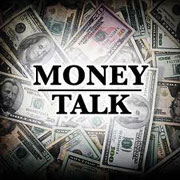
Money talk falls on deaf ears
By James Clingman
Surely you’ve heard the saying, “Money Talks.” But, have you ever wondered what is said about Black money? Obviously, understanding its power and the role it plays in this economy, money speaks loudly and clearly, and Black money speaks even louder. But what does it say?
We know from past experience, when we have grievances, if we resort to economic retaliation we can get things done. Why? Because Black money speaks loudest when it is under duress. One trillion dollars can get pretty loud and boisterous, and those who are getting the lion’s share of it right now pay close attention to what it is saying. They sit up and take notice when we resort to withholding our money from their coffers. Just look back in history and you can see what I mean.
The only language that gets things done in this country is the money language. Why do you think those folks on that balcony at the New York Stock Exchange always clap at the end of the trading day – regardless of a loss or a gain? In 2001, immediately following the World Trade Center tragedy, the call went out to the American public to spend more money; and then President George W. Bush called for a spending campaign with the $600 “advance tax refund” checks.
Consumption comprises two-thirds of our Gross Domestic Product (GDP); the more we spend the higher it goes. Black dollars play a significant role in that scenario since we consume much more than we produce. But, since we already know what our dollars are saying to everyone else, let’s see what Black dollars are saying to Black people.
There is a great deal of it in the hands of brothers and sisters who seem to have plugs in their ears, unable to hear what their money is saying. I see some in the Hip-Hop crowd doing voting summits but not economic summits, despite their collective worth of billions of dollars. I see many of our Black athletes and entertainers spending rather than investing in their own brothers’ and sisters’ businesses. And I see millions of everyday brothers and sisters spending their share of our $1 trillion haphazardly, aimlessly, and unashamedly on the baubles, bangles, and beads made by everyone else except Black folks. It is obvious they are not listening to their money, and even more obvious that they are certainly not listening to folks like me.
My hope is that they and other Black consumers will listen to Brother Norm Bond, Chairman of the National Alliance of Market Developers, and Sister Sara Lomax-Reese, President and General Manager of 900AM (WURD), as they have kicked off the Million Dollar Black Spending Power Campaign in Philadelphia. In conjunction with the Philly movement, Claud Anderson, author of Powernomics, and Bob Law, venerable radio talk show host and community activist, are conducting forums titled, “Where is the money going?” which deal with turning Black spending into real power. The commitment being asked of individual Black consumers is to spend at minimum of $20 per week at a Black-owned business.
Do you think you can do that?
I think it’s the least we can do, and we must spread this movement across the country. Our dollars speak volumes of positive words but mostly to businesses other than those owned by Blacks. Our dollars also speak loudly – we just need to listen more closely and understand what they are saying. And then we must act upon their messages of power, leverage, and reciprocity.
You know, if Philadelphia sustains the Million Dollar Black Spending campaign, the impetus and catalytic effects from that city alone would demonstrate the strength and benefits of recycling Black dollars like no other movement has done. Philadelphia alone, with its tremendous number of Black businesses, associations, consumers, its history with Richard Allen, the Philadelphia Plan, Leon Sullivan, Ed Robinson, and Kenneth Bridges’ MATAH Network, Kenny Gamble, Walter Lomax, anchored by WURD Radio, could serve as the model of how to get Black dollars to make some sense. I trust and pray you will support this movement.
Yes, money talks, and Black money talks even more and much louder. Black money is talking and saying positive things to white-owned businesses, Asian-owned businesses, Indian-owned businesses, and the many others that Black consumers support. But, most of the time Black money is only saying “Good-bye!” to Black people. Let’s use the new “Philadelphia Plan” to start a new relationship with our dollars by reintroducing ourselves to our own money. Contact Norm Bond at norm@normbond.com.
